Courier journalists were at the forefront of reporting on the pandemic and how it rocked and then re-shaped our communities.
From the first Scots receiving tests in Tayside to the complete lockdown of our schools, restaurants, pubs and many of our workplaces, our teams were on hand to tell the story.
For many, it can be a difficult time to look back on, but with the UK Covid Inquiry putting those difficult days back into the spotlight, we remember how the most important story of our generation developed in and around our homes, offices and high streets.
24 January
There had been no confirmed cases of coronavirus in Scotland but five people (two in Tayside) were being tested.
There were fears for the safety of the students at Dundee University because five of their staff had just come back from Wuhan, China.
At this time, the worst of the virus was in Wuhan, with at least 17 confirmed deaths.
Covid-19 was not considered a global emergency. Yet.
2 March
Just over a month later, the first case of the virus was confirmed in Scotland.
A Taysider had returned from Italy and was admitted to hospital.
Nicola Sturgeon said: “Scotland is well prepared for a significant outbreak of coronavirus but there is currently no treatment or vaccine.”
7 March
Cases in Scotland had begun to grow, with two people in Fife testing positive. This brought the total confirmed cases in the country to 11.
With the virus spreading to Fife, many worried that the popular Links Market would go ahead, still not fully realising the scale of what was to come.
13 March
The Scottish Government had just announced that gatherings of more than 500 people should be cancelled.
This meant several large-scale events across Tayside and Fife faced the axe.
The most notable cancellations included BBC Radio 1’s Big Weekend, which was set to take place at Camperdown, and Rewind Festival at Scone Palace.
It was years before the two events returned to the area.
Meanwhile, then prime minister Boris Johnson had described the situation as the “worst public health crisis for a generation”.
16 March
Medical experts were now predicting that 7,000 people in the area would test positive for Covid-19 during the crisis.
The first mentions of pressure on the NHS began to come into focus.
NHS Tayside, it was said, would be “challenged like never before”.
18 March
Lockdown before we knew how to describe it.
Businesses across the country began to close their doors after the number of positive cases rose dramatically.
People were now being told that the pandemic would see the loss of thousands of jobs in Tayside and Fife due to the virus.
A second death in Scotland was recorded.
19 March
The next day the Scottish Government announced that schools would close – with officials not expecting to open again until after summer.
A third person died due to the virus and 227 people across Scotland had now tested positive for Covid-19.
NHS Tayside also made the decision to limit visiting hours – but not to close the doors completely.
21 March
Nicola Sturgeon advised older people across the country to keep away from their grandchildren, and other family members, so they can live “to see them grow up”.
Pubs, cinemas and restaurants were urged to close their doors indefinitely.
By now, six people in Scotland had died due to coronavirus.
24 March
This Courier cover came after Boris Johnson announced a UK-wide lockdown in order to stop the spread of Covid-19.
The death toll in Scotland had risen to 14.
Many people expected it would only be for a short period time while cases remained high.
31 March
An 80-year-old woman in Broughty Ferry died after catching the virus. She was the first in the area to pass away due to Covid-19.
The SEC in Glasgow was being prepared as a makeshift hospital for those who tested positive.
It was also announced that all Scottish cancer screening would be suspended to save resources for batting the pandemic.
People across our communities had begun to process to the true scale of the tragedy that was about to unfold.
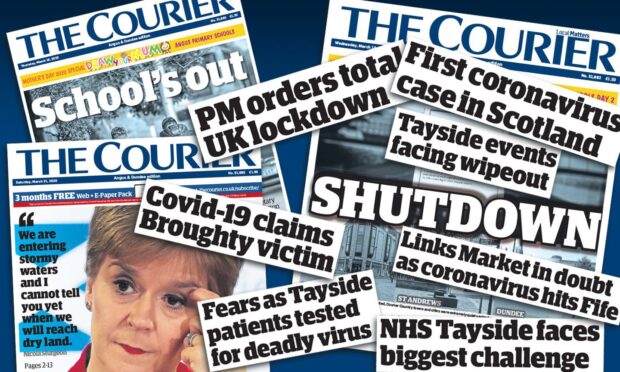
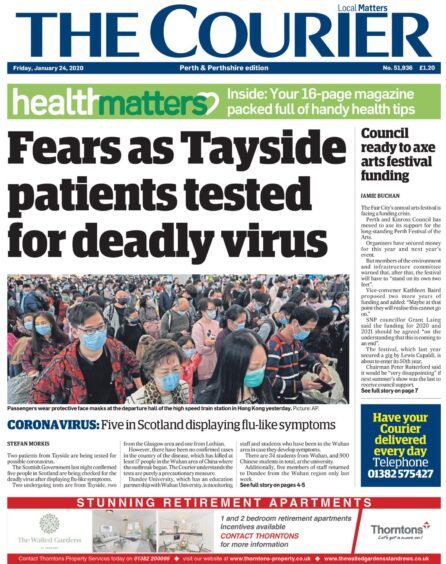
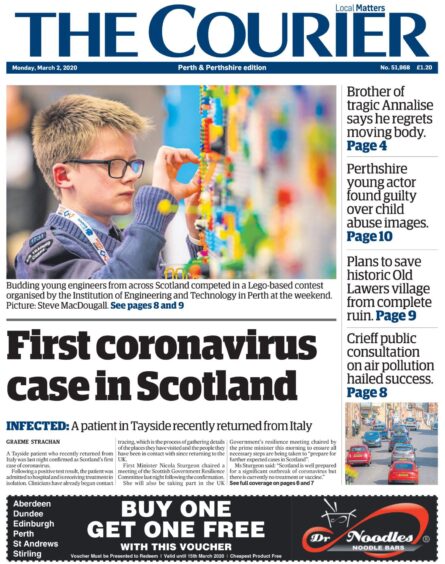
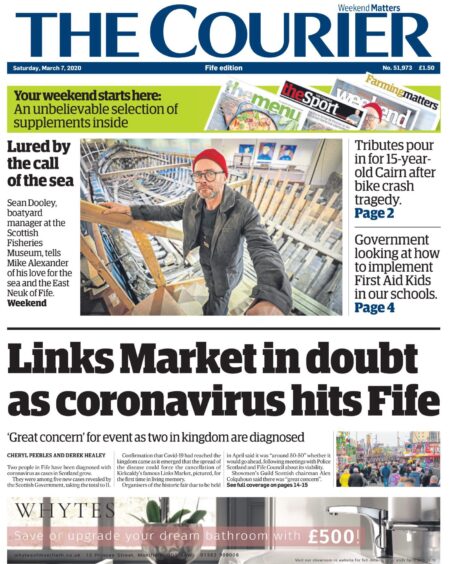
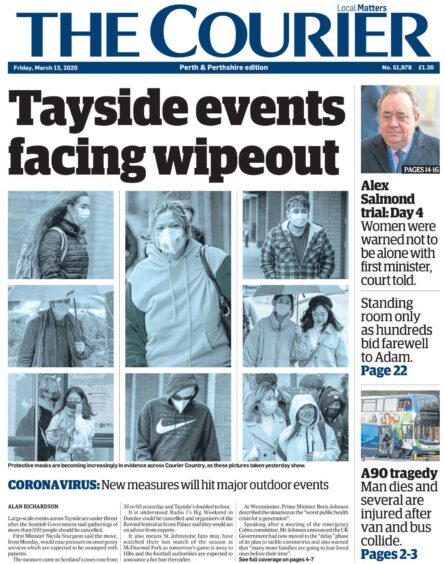
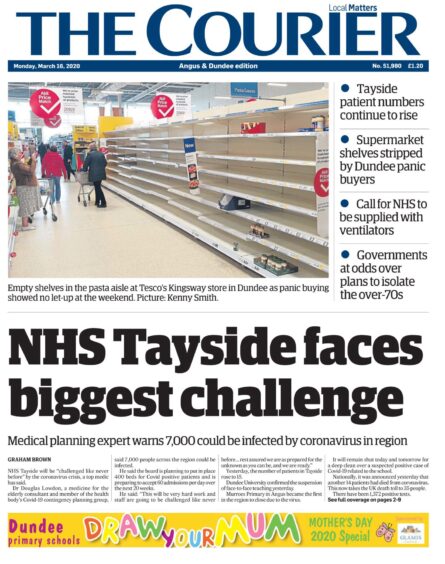
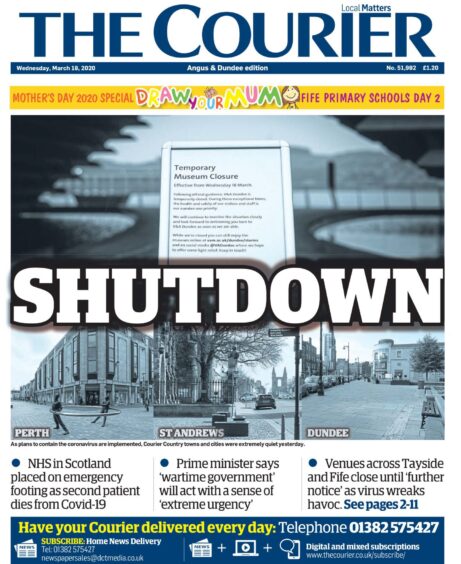
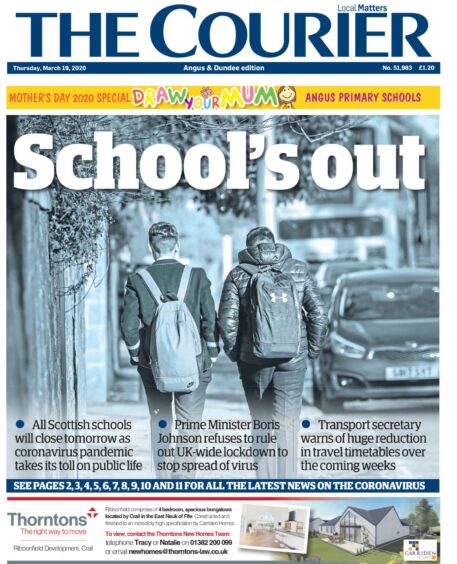
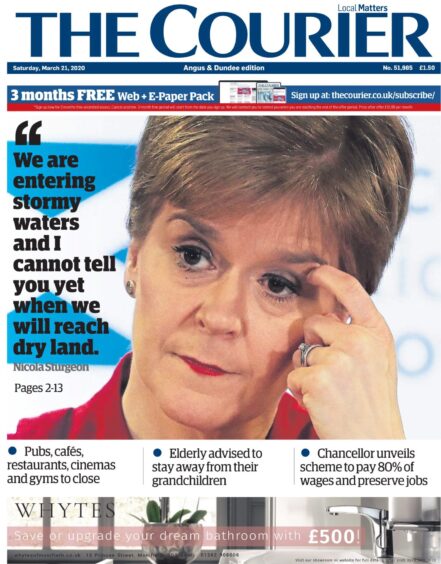
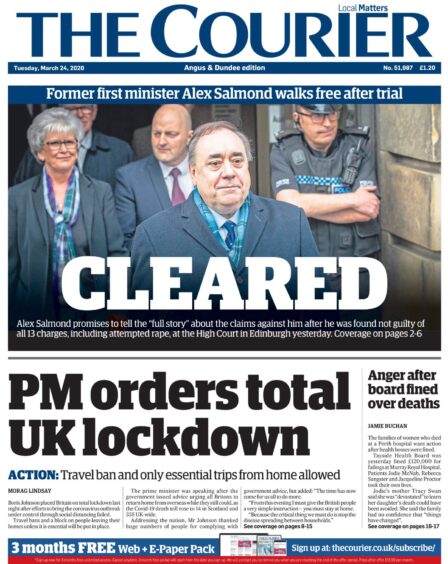
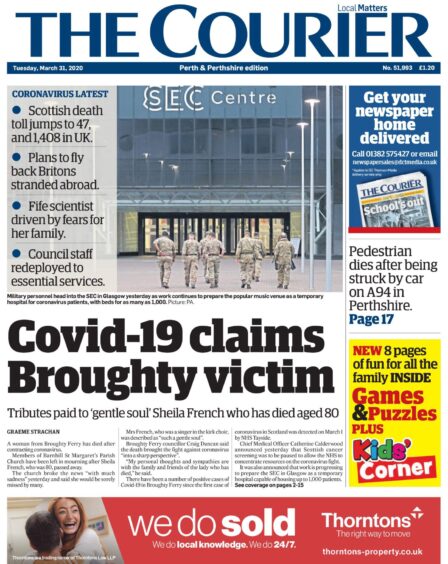
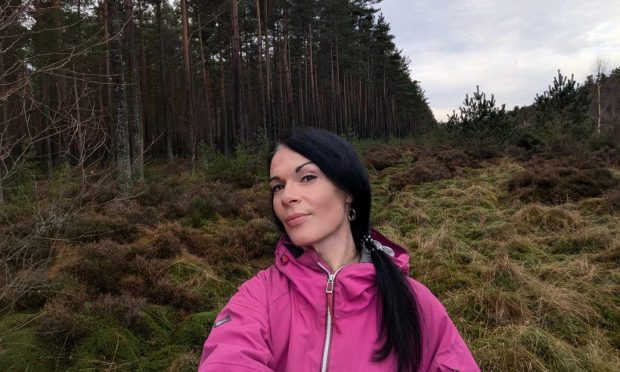
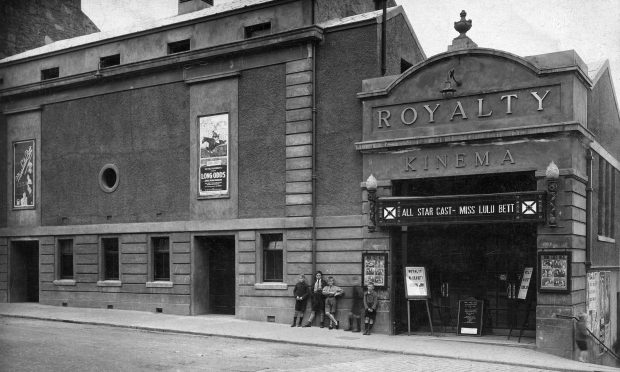
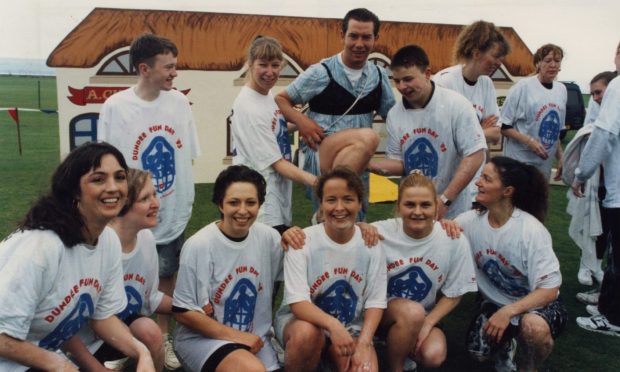
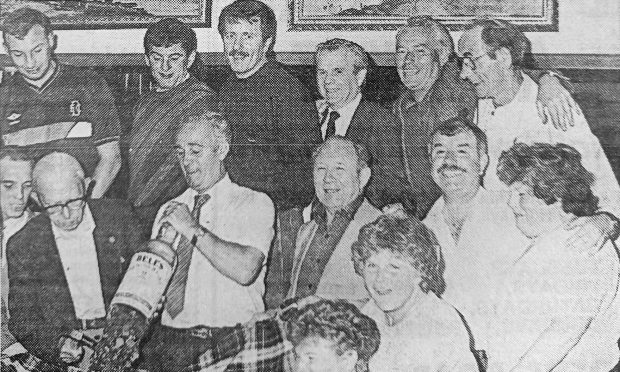
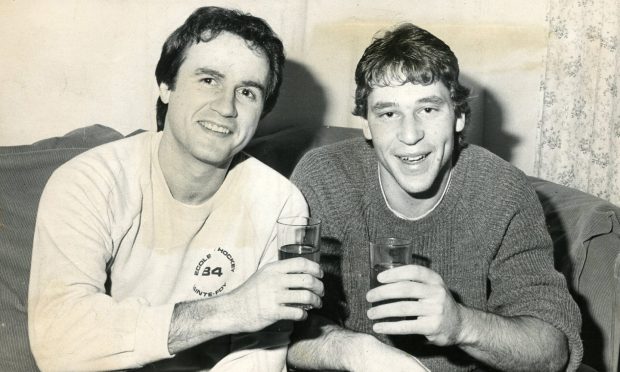
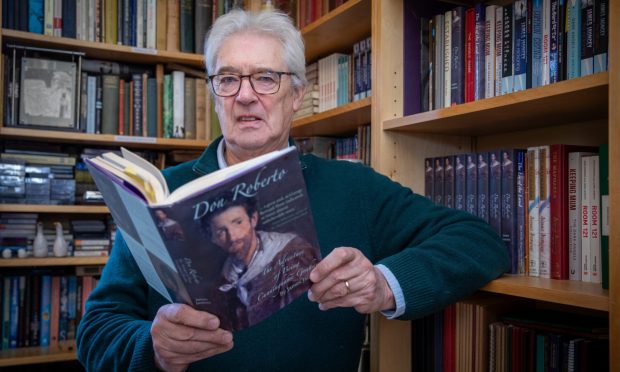
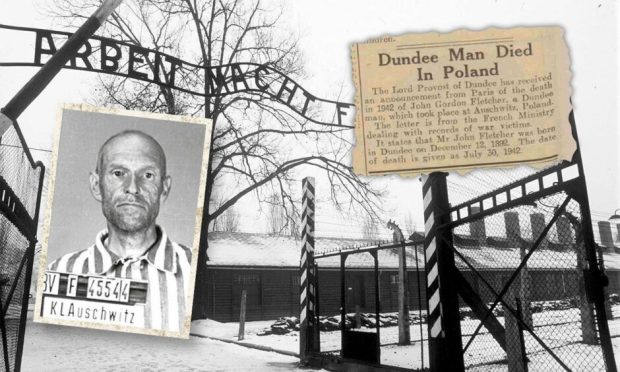
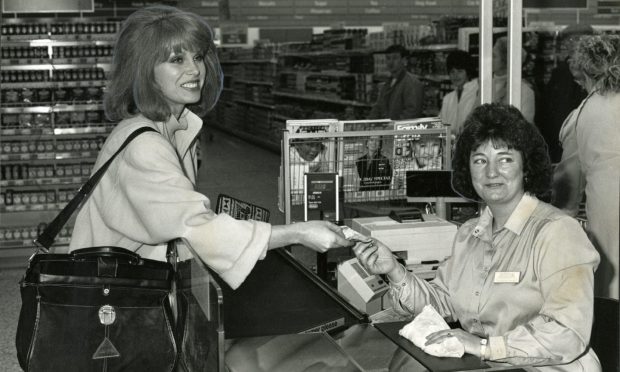
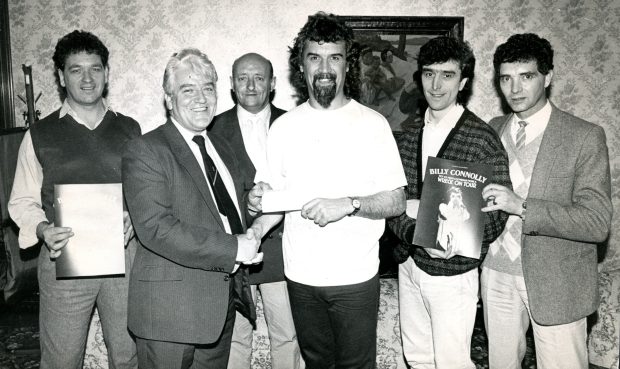
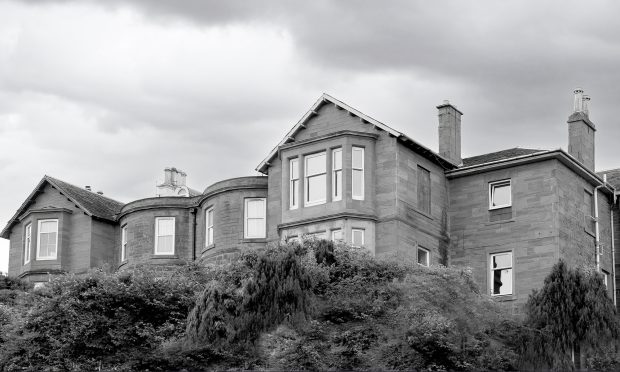
Conversation